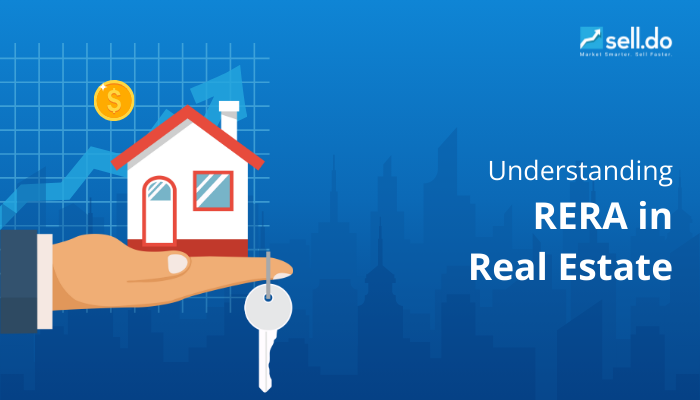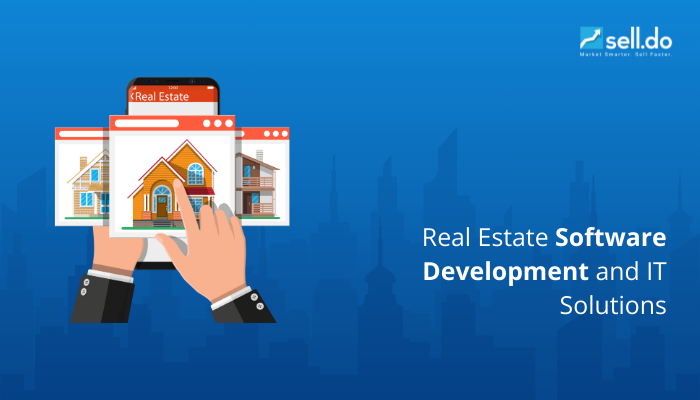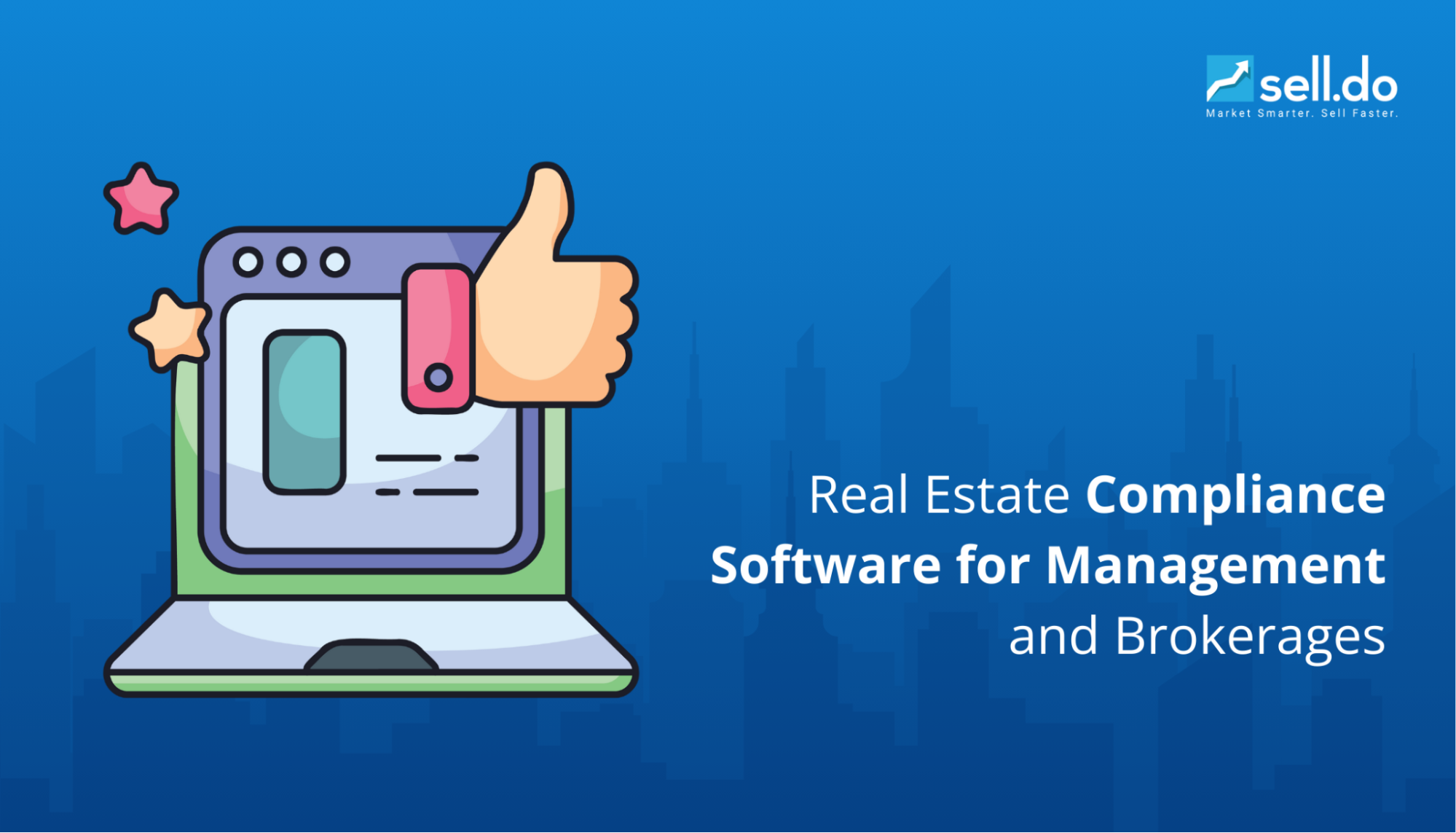Starting and growing a real estate business isn’t just about selling properties—it’s about building a brand, connecting with clients, and mastering the market. If you’ve been thinking about launching your own real estate business or are looking to take your current venture to the next level, you’re in the right place.
This article will guide you through the key steps to get started, from choosing the right niche to leveraging technology that can help you work smarter, not harder. Let’s cut through the noise and get you on the path to turning your real estate ambitions into a thriving, profitable business.
Ready to dive in? Let's begin by exploring some of the key laws that regulate the real estate industry in India
Key Real Estate Laws to Know in India

Below are the important laws and regulations you need to be aware of:
- Transfer of Property Act, 1882: Defines the legal framework for transferring property, covering sales, gifts, leases, and mortgages. It ensures clarity and enforceability in transactions involving both movable and immovable assets.
- Indian Contract Act, 1872: Governs all agreements and contracts, ensuring they are legally valid and enforceable. This law is crucial for purchase agreements and other real estate-related contracts.
- Registration Act, 1908: Ensures the registration of documents related to property transactions. This process enhances transparency, establishes ownership, and helps prevent disputes.
- Foreign Exchange Management Act, 1999 (FEMA): Regulates the purchase and ownership of property in India by non-residents and foreign nationals, ensuring compliance with India's foreign exchange laws.
- Real Estate (Regulation and Development) Act, 2016 (RERA): Aims to increase transparency and accountability in real estate projects. It mandates developers to register projects and adhere to clear timelines, protecting the interests of homebuyers.
- Indian Easement Act, 1882: Provides legal rights to property occupiers for specific uses, such as accessing neighboring land, for a defined period or under specified conditions.
- Indian Stamp Act, 1899: Regulates the payment of stamp duty on property-related documents. It ensures that transactions are properly stamped, making them legally valid and admissible in court.
In addition to the laws mentioned above, each state may have specific rules that you need to look up to ensure secure and transparent transactions.
Now that we've covered the legal framework, let's dive into the key steps to start and grow a successful real estate business in India.
Step 1: Define Your Niche
When starting a real estate business in India, it’s essential to choose a niche that aligns with your budget, domain knowledge, and risk appetite. Initially, it’s wise to focus on one area to build expertise and minimize risks, and as your business grows, you can expand into other niches. Below are the different niches to help you get started:
- Residential: If you’re on a tighter budget or new to the market, residential properties offer relatively lower risks, especially in emerging areas.
- Commercial: Higher capital investment, but offers long-term tenants and stable returns in key business districts.
- Luxury: Requires significant investment and market knowledge but offers high margins in prime locations like Mumbai or Delhi.
Focus on one niche, understand the dynamics, and gradually expand as you gain more experience and capital. Additionally, research local market trends and evaluate demand in your desired location.

Step 2. Conduct a Market Research
Gaining a thorough understanding of the local market is crucial to success. Begin by researching:
- Local Market Trends: Stay updated on property price trends, demand, and supply in your target area. Pay attention to both macro and micro factors, such as government policies, economic growth, and infrastructure projects that may influence property values.
- Property Values and Neighborhood Conditions: Use real estate platforms, consult with agents, and visit neighborhoods to get accurate data on property values. Understand factors like accessibility, safety, amenities, and future development projects that could impact the area's growth.
- Future Developments: Research upcoming infrastructure projects or changes in zoning laws that could increase the value of properties in certain areas.
Step 3. Develop a Business Plan
A well-structured business plan is essential for guiding your decisions, securing funding, and steering growth. Your plan should not only cover financial projections but also detail market strategies, customer acquisition plans, and operational efficiency. In addition to setting clear goals, your business plan should address:
- Funding Strategy: Outline how you plan to finance your business, whether through personal savings, loans, or attracting investors.
- Marketing Plan: Define how you’ll reach your target audience—whether through online platforms, real estate portals, or networking with developers and agents.
- Operations: Identify key operational steps, such as setting up property management systems or outsourcing legal and administrative tasks.
Consider your target audience to determine whether you will be focusing on first-time homebuyers, property investors, or high-end clients.

How to Write and Grow a Real Estate Business Plan: Essential Tips
Step 4: Legalities and Licensing
When starting a real estate business in India, it’s essential to address all legal requirements upfront to avoid complications down the road. Here are vital steps to follow:
- Obtain Necessary Licenses: As per the Real Estate (Regulation and Development) Act (RERA), every real estate agent or broker must be registered with the local state authority. Make sure to apply for your RERA license and keep it updated.
- Select the Right Business Structure: Choose a legal structure that aligns with your business goals. In India, the common options are:
- Sole Proprietorship: Best for small businesses but may expose you to personal liability.
- Partnership: Ideal if you plan to share responsibilities and profits with others.
- Private Limited Company (LLC): Offers liability protection and is often preferred for scalability.
- Comply with Local Regulations: Each state in India has specific rules related to real estate transactions, building codes, and registration. Ensure that you comply with local laws related to property dealings, tax filings, and other real estate-specific rules.
Consulting a legal expert or chartered accountant will help you choose the most tax-efficient and suitable structure for your business.

Step 5: Financial Planning and Securing Capital
Effective financial planning is necessary to give you the flexibility to act quickly and scale your operations strategically. When it comes to financing your real estate business in India, you have several options:
- Traditional Routes: Banks and financial institutions offer loans, mortgages, and lines of credit with relatively lower interest rates. These are ideal for securing long-term funding but often require solid credit scores and extensive documentation.
- Alternative Financing: For more flexible or faster access to funds, consider options like hard money lenders, private investors, or crowdfunding platforms. These options may come with higher interest rates, but they can provide the quick capital you need to close deals faster.
Additionally, secure pre-approval for loans, build your credit, and save for down payments so you can act swiftly when a good deal arises. Also, create a solid budget for both initial expenses (property, legal fees) and ongoing costs (maintenance, taxes).
Step 6: Building a Strong Network and Brand
By connecting with the right people and establishing a trustworthy reputation, you can unlock new opportunities and accelerate your growth.
Join a Real Estate Investor Community
Networking with other investors, brokers, and professionals is invaluable when starting a real estate business. Becoming part of local and online real estate communities opens doors to new opportunities, partnerships, and market insights. These connections can help you stay updated on trends, learn from others’ experiences, and gain access to potential deals.
Learn from Industry Professionals
Mentorship is one of the fastest ways to grow in the real estate industry. By learning from experienced professionals—such as agents, legal advisors, and financial planners—you’ll gain insights that help you avoid costly mistakes and make informed decisions. Building relationships with these key experts will ensure you're well-supported as you navigate the complexities of the market.
Develop Your Brand Identity
Creating a memorable brand is critical to standing out in the competitive real estate industry. Focus on building trust with your clients by delivering consistent value and maintaining a professional image. A strong brand will help establish your reputation and attract a loyal client base, paving the way for long-term success.

Step 7: Operational Framework and Management
Setting up efficient systems and ensuring smooth day-to-day management will save you time, reduce errors, and help you scale your business. Here’s how to streamline your operations for maximum efficiency:
Responsibilities as a Landlord or Real Estate Agent
Whether you manage properties as a landlord or work as a real estate agent, your responsibilities will be multifaceted. You’ll need to oversee property maintenance, handle tenant or client relations, and ensure compliance with legal regulations. Staying organized is critical to managing day-to-day tasks like rent collection, lease agreements, and property inspections.
Third-Party Property Management
Outsourcing property management is a smart choice as your business grows. It lets you focus on scaling while experienced managers handle tenant issues and property upkeep. Choose reliable companies with a proven track record to take care of tasks like rent collection and maintenance, allowing you to concentrate on business development.
Set Up Systems and Processes
As your business grows, manual management becomes challenging. Use tools like Sell.Do to automate tasks, manage client relationships, and track leads efficiently. Set clear operational procedures for client onboarding, property showings, and document management to ensure consistency and minimize errors.

Step 8: Evaluating Property for Investment Purpose
By focusing on rental income, resale value, and long-term appreciation, you can identify profitable opportunities and minimize risks.
Evaluate for Profit Potential
When assessing a property, consider the following points:
- Rental Income: Look at the potential for steady cash flow through rentals. Research local rental rates and demand in the area to estimate earnings.
- Resale Value and Appreciation: Investigate the property’s potential for long-term value growth by checking the location, market trends, and upcoming developments that might boost its resale price.
- Market Cycles: Understand the market’s cycle—buying during a buyer’s market or selling in a seller’s market can impact your profits significantly.
Research, Professional Assistance, and Investor Strategies
Research and expert guidance is essential for intelligent investments. Work with appraisers, inspectors, and legal professionals to ensure accurate valuations, identify potential issues, and confirm legal compliance.
For new investors, focus on properties with stable income and lower risk. Start small, do thorough due diligence, and consider partnering with experienced investors or hiring property managers to optimize your strategy.
Step 9: Scalability and Growth in Real Estate Business
Last but not least, you need a strategic approach to ensure long-term growth and success. Here are a few points to keep in mind:
- Expanding Your Business: Scale your operations by automating tasks and hiring a team to handle growing demands.
- Explore New Investment Opportunities: Diversify your portfolio by investing in commercial properties, real estate development, or property flipping. Expanding into different markets and property types will increase your business potential.
- Develop a Long-Term Growth Model: Build a strategy focused on long-term growth. Stay competitive by embracing new technologies, innovating your business practices, and adapting to market changes.

Effective Real Estate Marketing Ideas to Boost Your Business
Step 10: Implement the Right Tools
To grow and manage your real estate business effectively, you need the right tools to streamline operations, attract leads, and engage with clients. Here's how these tools can help:
Website and Landing Page Builders
A professional online presence is critical to showcase your listings and services. Tools like Wix, Squarespace, and WordPress allow you to create visually appealing and SEO-optimized websites. Platforms like Unbounce and Leadpages are ideal for creating high-converting landing pages.
Social Media Management Tools
Engaging with potential clients on platforms like Facebook, Instagram, and LinkedIn is essential. Tools like Buffer, Hootsuite, and Canva simplify content scheduling, creation, and performance tracking, allowing you to build a strong online presence and connect with your audience effectively.
Lead Generation Platforms
Portals like MagicBricks, Housing.com, and CommonFloor are popular in India for generating high-quality leads. These platforms provide property listings, virtual tours, and targeted ad options, making them invaluable for reaching potential buyers and renters efficiently.
Advertising Tools
Running targeted ads is crucial for lead generation. Platforms like Google Ads and Facebook Ads help reach specific demographics and locations. Tools such as AdEspresso can assist in creating and managing campaigns across multiple channels.
Accounting and Expense Management Tools
Tracking finances is essential for long-term success. Tools like QuickBooks and Tally provide real-time insights into cash flow, client billing, and expense management.
Virtual Tour and Presentation Tools
With increasing demand for virtual property tours, tools like Matterport and Floorplanner enable the creation of 3D property views and professional presentations, enhancing the buyer experience.
CRM Systems such as Sell.Do
Customer Relationship Management (CRM) software is vital for managing client interactions, tracking leads, and automating follow-ups. CRMs like Sell.Do are designed for real estate professionals.
It helps brokers, agents, and developers streamline operations, manage leads, and automate marketing campaigns, enabling them to focus on what matters most—growing their business. With powerful features for lead tracking, client relationship management, and data-driven insights, Sell.Do ensures that your real estate operations run smoothly and efficiently.
Key Features of Sell.Do
- Lead Management: Capture, track, and nurture your leads with automated follow-ups and personalized communication.
- Marketing Automation: You can manage email campaigns, SMS marketing, and targeted promotions to engage potential clients.
- CRM & Contact Management: Organize and manage client data, track interactions, and maintain strong relationships.
- Task & Workflow Automation: Automate daily tasks, reminders, and follow-ups to save time and boost productivity.
- Analytics & Reporting: Gain insights into lead conversion, marketing effectiveness, and business performance with detailed reports.
- Customizable Dashboards: Tailor the platform to your needs with easy-to-use, customizable dashboards for better decision-making.
With Sell.Do, you can manage every aspect of your business in one place, improving efficiency and driving growth.
Conclusion
Starting and growing a successful real estate business requires careful planning, research, and strategic decision-making. By defining your niche, building a strong network, and making informed investment choices, you can lay a solid foundation for long-term growth.
As your business grows, it's essential to refine your operations, explore new opportunities, and stay adaptable to market changes. To keep things running smoothly, tools like Sell.Do can help you manage everything from leads to marketing automation. With the right CRM in place, you can scale efficiently and keep your business thriving in a competitive market.







Leave a comment
Comments (0)
Be the first one to comment.